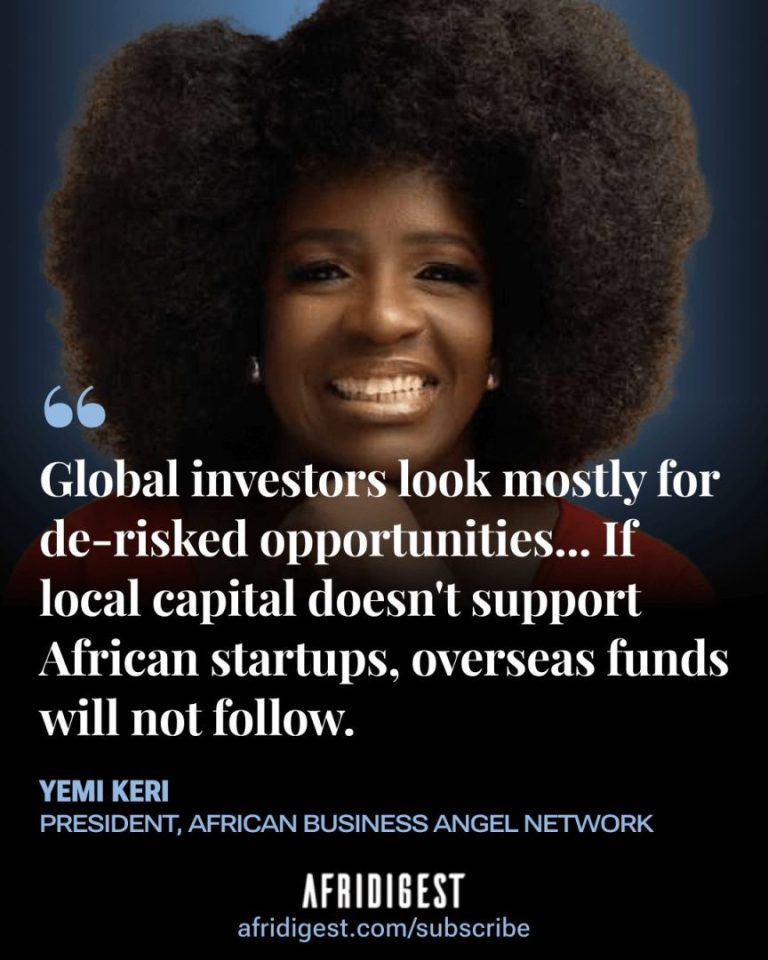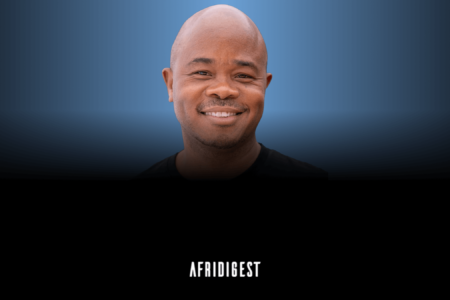
Flutterwave, Paystack, and Moniepoint have something in common: none of them started with foreign money.
That’s a key insight from Yemi Keri, President of the African Business Angel Network (ABAN) and Co-founder of Rising Tide Africa, who argues that local capital must lead the way in Africa’s startup ecosystem.
“Global investors look mostly for de-risked opportunities,” Keri explains. “If local capital doesn’t support African startups first, overseas funds will not follow.”

She adds, building on this fundamental principle:”If we keep waiting for global funds, we will have to accept their terms and conditions. But if we lead with our own money, we set the pace and give confidence to the rest of the world.”
Keri points to concrete evidence:
Industry surveys show that business angels in Africa who invest in startups do so very early on in the companies’ lifecycles — the riskiest stage often referred to as the “valley of death,” where many startups collapse entirely.
But where there’s risk, there’s also reward — and real impact.
All three Nigerian fintechs mentioned above were initially fueled by high-risk capital from angel investors and local funding networks before attracting global VC attention.
“We took the first hit,” Keri says. “It was only after angels and local investors put money on the table that international players came in.”
Building on these success stories, the local capital movement is strengthening across the continent.
What began as small, fragmented investments is maturing into organized networks with collective power:
- ABAN has grown into a community of 5,000+ Africa-focused angel investors organized in ~80 networks across 35+ African countries
- Average angel ticket sizes (amounts invested per deal) continue to increase
- 40% of angel participation now happens in pre-seed rounds
- Digital platforms are making angel investing more transparent, efficient, and accessible
These developments shouldn’t be overlooked as early-stage risk-taking creates the pipeline that later-stage investors depend on.
“We invest when there is little more than an idea, a prototype, or a small founding team,” Keri stresses. “When startups advance to acquisitions, IPOs, or late-stage funding rounds… our early risks helped make that possible.”
Yet despite its crucial role and recent momentum, local angel investing remains largely underdeveloped across much of the continent — creating a circular problem: without local capital taking the first risk, foreign investors won’t follow; but without the participation and validation of foreign capital, local investors may hesitate.
Keri’s solution? Action.
“This is not the time to sit on the sidelines,” she insists. “Africa’s future will be built by Africans who believe in it, and who back that belief with capital, courage, and collaboration… Africa must fund Africa.”
What’s your take?
- What barriers prevent more African investors from participating in early-stage funding deals? What would it take to move from 5,000+ angel investors already active in ABAN’s network to 50,000+?
- How important is maintaining African ownership and control in the continent’s tech ecosystem versus accessing the largest possible pools of capital?
- Can homegrown funding ecosystems scale fast enough to match the continent’s startup ambitions, or will dependence on foreign capital remain inevitable for the foreseeable future?





Share: